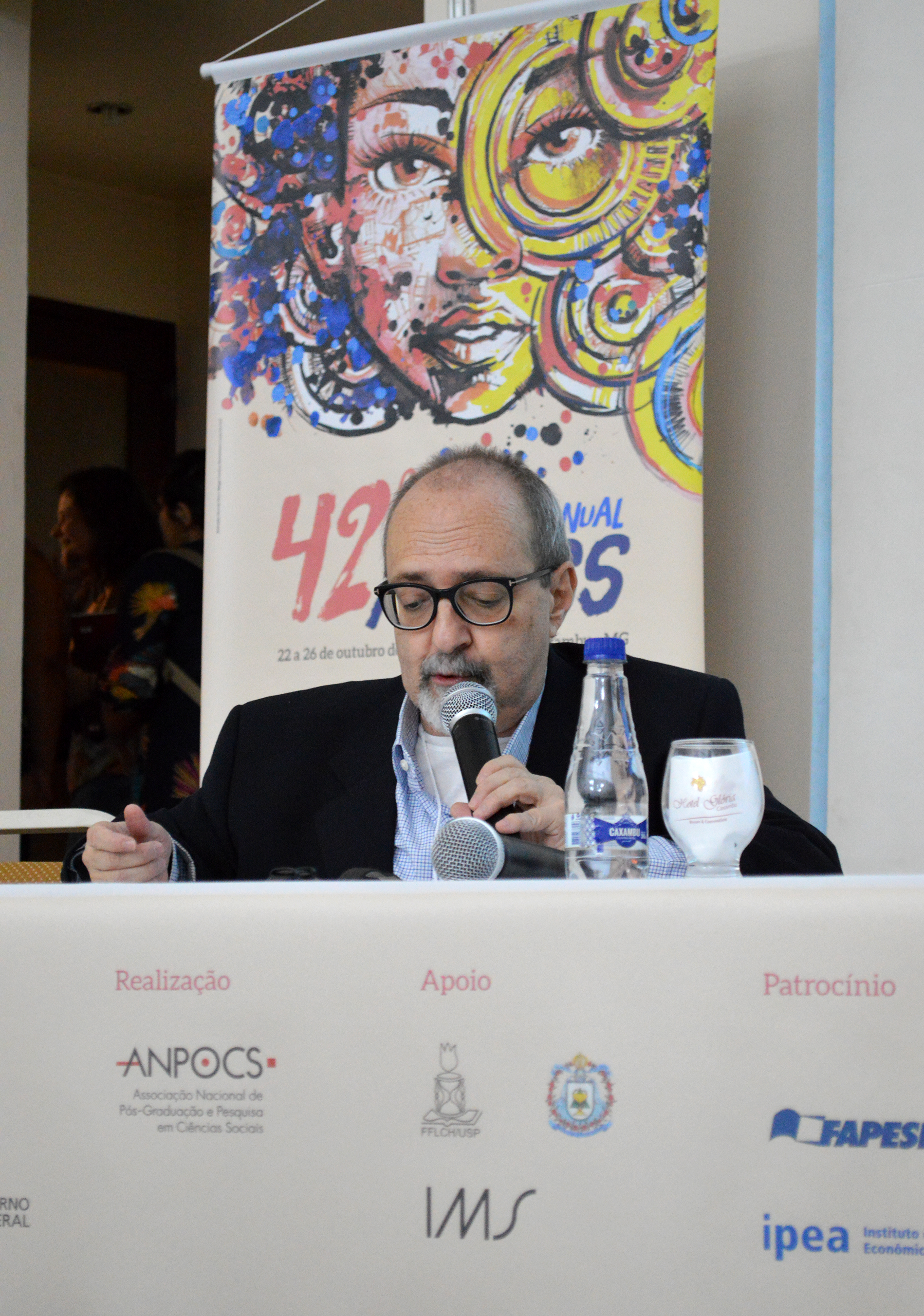DFG Attends ANPOCS Annual Social Sciences Meeting
(29.11.18) The 42nd meeting of the Brazilian National Association of Postgraduate Studies and Research in Social Sciences (ANPOCS – Associação Nacional de Pós-Graduação e Pesquisa em Ciências Sociais) took place in Caxambu in the state of Minas Gerais from 22 to 26 October. The event was attended by over 1,000 researchers in the field who took advantage of this opportunity to present their research work. During numerous discussions, working groups, symposia and colloquia, there was lively exchange of views on topics of high social relevance, such as democracy, human rights, inequality, discrimination, the environment and the media.

Prof. Sérgio Adorno at the opening of the meeting
© ANPOCS
The discussions also addressed the future of science and the humanities against a backdrop of elections as well as issues such as conflicts, justice and elections. The lack of funding opportunities in the field and troubling incidences of social intolerance at universities within the country were also touched upon during the opening address.
In the view of ANPOCS President Prof. Dr. Fabiano Santos, cuts in research funding for humanities and social sciences are often based on a lack of understanding among politicians and society of the significance of sociology, anthropology and political science in relation to achieving peace and social stability.
Anthropologist Dr. Otávio Velho, emeritus professor at the national museum of the Federal University of Rio de Janeiro (UFRJ) and honorary president of the Brazilian Society for the Advancement of Science (SBPC), expressed concern over discriminatory tendencies towards minorities, affecting the indigenous and Afro-Brazilian population in particular, and explained that a greater emphasis must be placed on honouring and acknowledging the interests of these groups in society.
During the opening of the event, it was repeatedly emphasised that, despite these challenges, there is a desire to continue to work on expanding social science research at the national and international level.
Links to Germany
In addition to presentations, there was also the opportunity to find out more about opportunities for research visits and collaborations as well as funding programmes in the field of social sciences at the Research in Germany stand. On the third day of the event, there was also a Research in Germany Lunch Session which included presentations by the DFG, the German Academic Exchange Service (DAAD) and the Maria Sibylla Merian Centre Conviviality-Inequality in Latin America (Mecila).
The research group set up in 2017 and funded by the German Federal Ministry of Education and Research (BMBF) brings together scientific institutions from Germany, Brazil, Argentina and Mexico to examine the challenges of social, political, religious and cultural conviviality in Latin America and the Caribbean – highly relevant issues that were also discussed during the ANPOCS meeting.